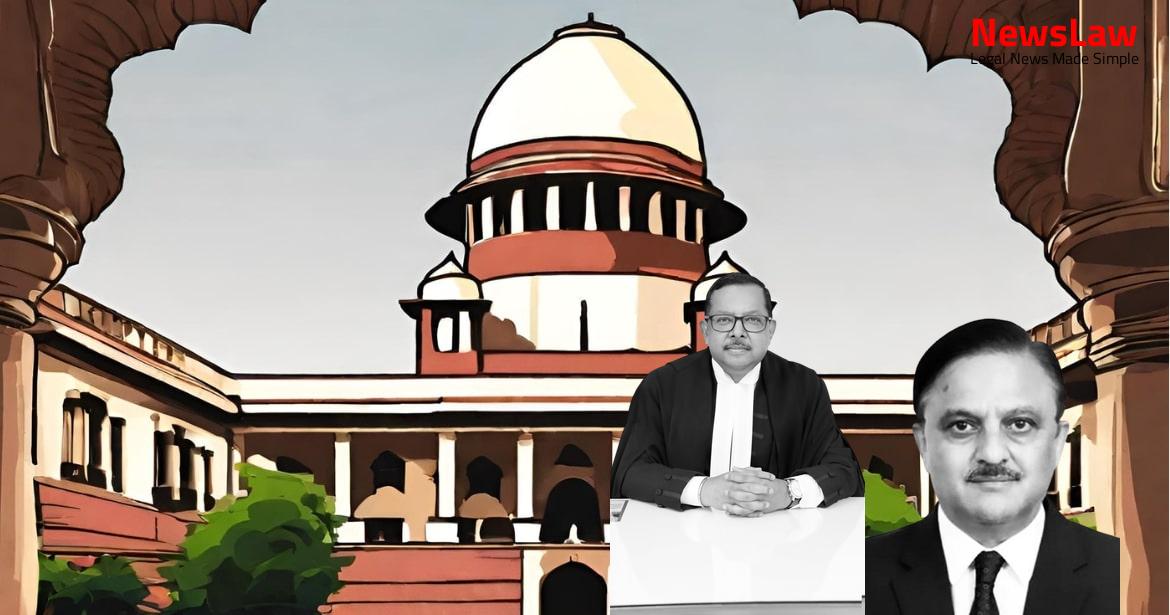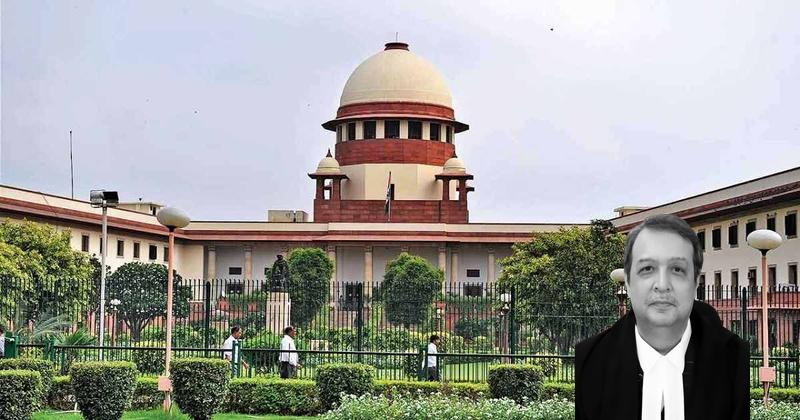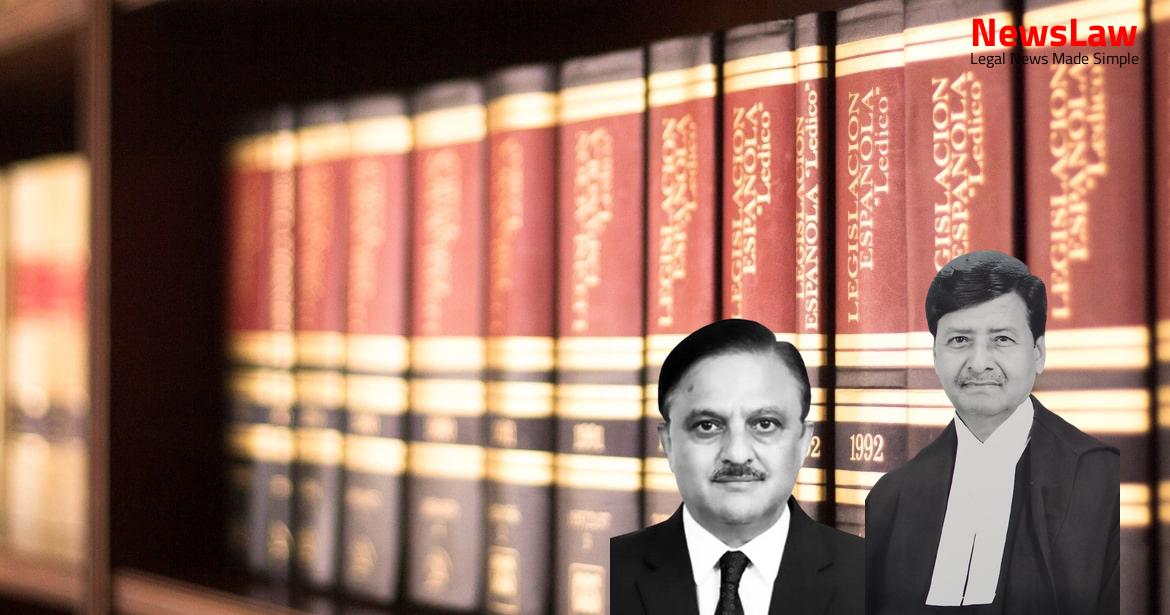Dive into a detailed legal analysis of a recent court case revolving around the abetment of suicide. The case focuses on the critical elements essential for proving abetment under Section 306 of the IPC. The court’s meticulous evaluation of evidence and application of proper legal principles play a pivotal role in determining the accused’s guilt. Stay tuned to understand the nuances of abetment laws and the significance of mens rea in criminal cases.
Facts
- The appellant filed an appeal against the judgment and order dated 03.09.2008 passed by the High Court of Punjab and Haryana at Chandigarh.
- The High Court dismissed the appellant’s appeal and upheld the conviction passed by the Additional Sessions Judge, Karnal.
- The appellant was found guilty of the offence punishable under Section 306 of the Indian Penal Code.
- The deceased, Rani, was married to the appellant on 10.05.1992.
- Rani, the deceased, was married to accused Naresh on May 10, 1992
- The marriage took place in Kurukshetra as per Hindu rites and customs
- The family of the deceased struggled to arrange the marriage expenses due to financial constraints
- After 2.5 months of marriage, the accused and his family began harassing Rani and demanded Rs. 50,000 for starting a shop
- Due to the demands and harassment, Rani consumed poison and committed suicide on November 19, 1993
- The accused had run a shop for about 11 months that was opened with the help of the deceased’s family
Arguments
- The petitioner argues that there is no evidence of harassment, physical or mental, by the deceased’s husband.
- The petitioner requests the conviction to be set aside and the appellant to be acquitted.
- The State’s counsel argues that the lower courts did not commit any errors in finding the appellant guilty.
- Emphasis is placed on the fact that the deceased committed suicide within seven years of her marriage.
- Section 113A of the Indian Evidence Act is cited to raise a presumption of abetment of suicide by a married woman.
- The oral evidence of PW-4 and PW-5 is deemed sufficient by the State’s counsel to uphold the conviction.
- The cause of the deceased’s suicide is not clearly identified in the evidence provided by PW-4 and PW-5.
- It is mentioned that the deceased became tense due to the appellant’s demand for money to start a ration shop after their marriage.
- The appellant’s counsel asserts that the lower courts erred in holding the appellant guilty of abetting the suicide.
Analysis
- The court considers if the accused is guilty of instigating the act of suicide.
- Instigation is defined as goading, urging forward, provoking, inciting, or encouraging to do an act.
- If the accused creates a situation leading the deceased to perceive no other option but to commit suicide, it may constitute abetment.
- The basic ingredients for an offense under Section 306 of the IPC are suicidal death and abetment.
- Section 113A of the Evidence Act presumes abetment of suicide by a married woman if subjected to cruelty by her husband or relatives within seven years of marriage.
- The presumption under Section 113A is discretionary and requires evidence of cruelty or harassment.
- Section 8 of the Criminal Justice Act, 1967 provides the framework for assessing mens rea.
- The essential ingredients of the offense under Section 306 IPC are abetment and the intention of the accused to aid or instigate the deceased to commit suicide.
- Using abusive language towards the deceased does not, by itself, constitute the abetment of suicide.
- Abetment involves a mental process of instigating or intentionally aiding a person in doing a thing.
- To prove the offence of abetment, the state of mind to commit a particular crime must be visible.
- In cases of alleged abetment of suicide, there must be proof of direct or indirect acts of incitement to the commission of suicide.
- Mere harassment without a positive action proximate to the time of occurrence on the part of the accused is not sufficient for conviction under Section 306 IPC.
- There should be evidence capable of suggesting that the accused intended to instigate the deceased to commit suicide.
- Instigation is to goad, urge forward, provoke, incite, or encourage to do an act.
- Conviction under Section 306 IPC requires clear mens rea to commit the offence and an active or direct act leading the deceased to commit suicide seeing no option.
- The intention of the legislature and the ratio of the cases decided by the Supreme Court emphasize the need for clear mens rea and direct acts to convict under Section 306 IPC.
- Courts failed to apply correct principles of law in the case of abetment of suicide.
- Conviction under Section 306 of IPC not sustainable due to lack of evidence.
- Importance of assessing evidence under Section 113A to determine cruelty.
- Absence of evidence of harassment or cruelty leads to inability to hold accused guilty.
- Criminal justice system itself can be a form of punishment.
- Prosecution failed to establish guilt of accused beyond reasonable doubt
- Correct principles of law governing abetment of suicide must be applied
- Court must be careful and vigilant in appreciating evidence on record
Also Read: Supreme Court Judgment:
Supreme Court Upholds Benefit of Input Tax Credit in Uttar Pradesh Value Added Tax Act 2008
Decision
- A coordinate Bench had ordered release of the convict on bail during the present appeal
- Since the appeal is being allowed and the convict is being acquitted, the bail bond(s) furnished then shall also stand discharged
- The judgment and order of conviction passed by the Trial Court as affirmed by the High Court is set aside
- The appellant stands acquitted of the charge framed against him
- The appeal succeeds and is allowed
Case Title: NARESH KUMAR Vs. STATE OF HARYANA (2024 INSC 149)
Case Number: Crl.A. No.-001722-001722 / 2010



